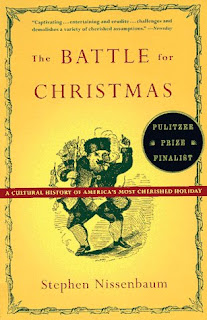This week, students are working on a descriptive writing for an assignment related to the novel Speak. Below, you will find several samples that might help with descriptive writing. Remember, the goal is to SHOW the reader one of your past/present teachers. You can gently poke fun, but do not cross lines of decorum.
Here is a sample rough draft. I'm sure you can find much to be desired in this essay, but hopefully it will help you see how it is possible to write (and maybe even limit yourself to) a 500 word descriptive essay.
Dr. Tunnel Vision: Sounds like a super hero, or maybe even a villain. He shoots you with his tunnel vision, and you’re sucked into a swirly vortex of nothingness, spinning deeper and deeper until your molecules disintegrate into a steaming soup of melted flesh and bone. No, unfortunately, Dr. Tunnel Vision was nowhere near as exciting as a vortex of human soup. Dr. TV was my English Lit. professor at Cal State.
Dr. Tunnel Vision knew his Lit. He could read old and middle English flawlessly, rolling his R’s and thrusting forth “thees” and “thous” from somewhere deep in his sinus caverns—he sounded a bit like Bullwinkle the famous moose. He made Milton and Chaucer at least somewhat understandable, and he gave me a tip I’ll never forget: read the entire thing through at least once, and then go back and look at the footnotes to help you understand each word. You have to be a decent teacher to explain lines like “lo, have it everydeel. Peter, I shrewe you but ye love it weel.” Yes, that’s an actual line from Canterbury Tales—I’d try to explain it, but I think it might mean something inappropriate.
You’re still wondering what any of this has to do with Tunnel Vision. I’m getting to it. In class, he appeared to be aware that he had a room full of students. He’d sweep his ancient eyes back and forth across the 25 or so confused faces (although now that I think about it, he rarely made eye contact, and he sure did spend a lot of time staring at the ground). He would dismiss class with a wave of his hand, or a grunt, or a Bullwinkle snort—we’d look at each other and wonder if that was it.
Me, to attractive young lady sitting in front: Um, does that mean class is over?
Attractive young lady: I think so. Does this guy remind you of Bullwinkle. You know…
Me (to myself): Yes! Talking to attractive young lady!
Me (out loud): The moose. Absolutely.
We trickle out of class, Professor follows, and the tunnel vision kicks in. You need to understand that I had several classes in the same building as Dr. Tunnel Vision’s office, so I would frequently pass him on the way to and from other classes. As a shy young college student (I was excited about carrying on a simple conversation with an attractive young lady for crying out loud), I was a bit uncomfortable speaking with professors outside of class. Especially those who sounded like a celebrity moose. Nevertheless, the first time I passed him in the hall, I mustered up my nerve, looked him square in the face, and mumbled something between a grunt and “hello.”
“Hrghoo perfesser.”
Dr. Tunnel Vision continued his long, jerky strides, hunching his back and bobbing his head back and forth with each step forward. His eyes inspected the concrete walkway for…what? Lost keys? Spare change? Was he rehearsing his next lecture on Beowulf? If he heard my awkward greeting, he made no indication. Instead, he paced forward like gigantic anorexic hen, bobbing his professorial head back and forth, maintaining a razor-like focus on the pavement.
Oh well, he probably didn’t see me. Unfortunately that group of students on the picnic table seemed to have no problem noticing that I’d just been punked by Dr. Tunnel Vision. A week or so later, I was crossing the concrete walkway, and here he was again. Showdown number two. He approaches, hands behind his back, step-step-step, a cross between a praying mantis and poultry. I clear my throat: “Ahem. Ahheeeeemmm. Hello professor.” What THE HECK is he looking at on the ground? Wait! He’s looking up! Straight ahead! He has to see me! The distance closes between us: Seven feet. Five feet. He’s staring straight ahead. Three feet. I smell his old man cologne. Two feet. Can it be? He doesn’t see me. If I stick my hand out six inches to the left, we’d be touching. Awkwardly. One foot. He mocks me! Hello, goodbye Dr. Tunnel Vision.
And so began our weekly ritual, which lasted, of and on, for about two years. I’d sit in English Literature, and Dr. Tunnel Vision would teach Beowulf in a Bullwinkle voice. I would raise my hand, he’d call on me. And then class would end and he’d trek into his tunnel. We’d pass in the hallways, on the sidewalks outside the student union, or in the walkway near the professor’s offices. I’d see him, and he’d stare through his tunnel. I would smile at him, wave, say hello-how-are-you-goodbye. He would stare at the ground or at a point somewhere in the distance.
It became a game. I could make faces, snort strange noises, jump suddenly as if I’d been shot—Dr. Tunnel Vision never acknowledged my existence outside of class. Never.
Perhaps he had peripheral blindness, in which case I’d feel slightly bad for making the faces. Perhaps he was so deep in professorial thought that he simply could not peel his eyes away from the spot three feet in front of his face. Or perhaps he was just a shy old man who knew his Lit.—Shy, awkward, brilliant:
That’s it.
























